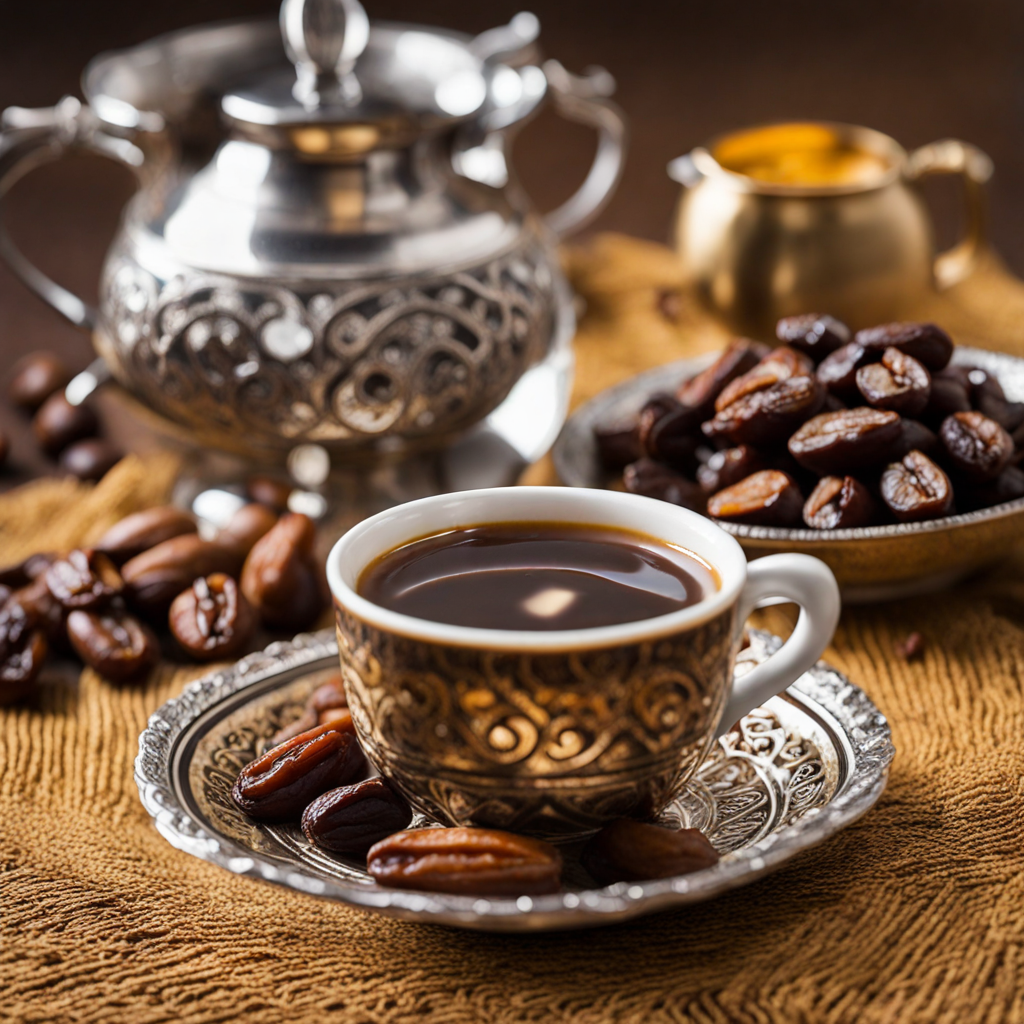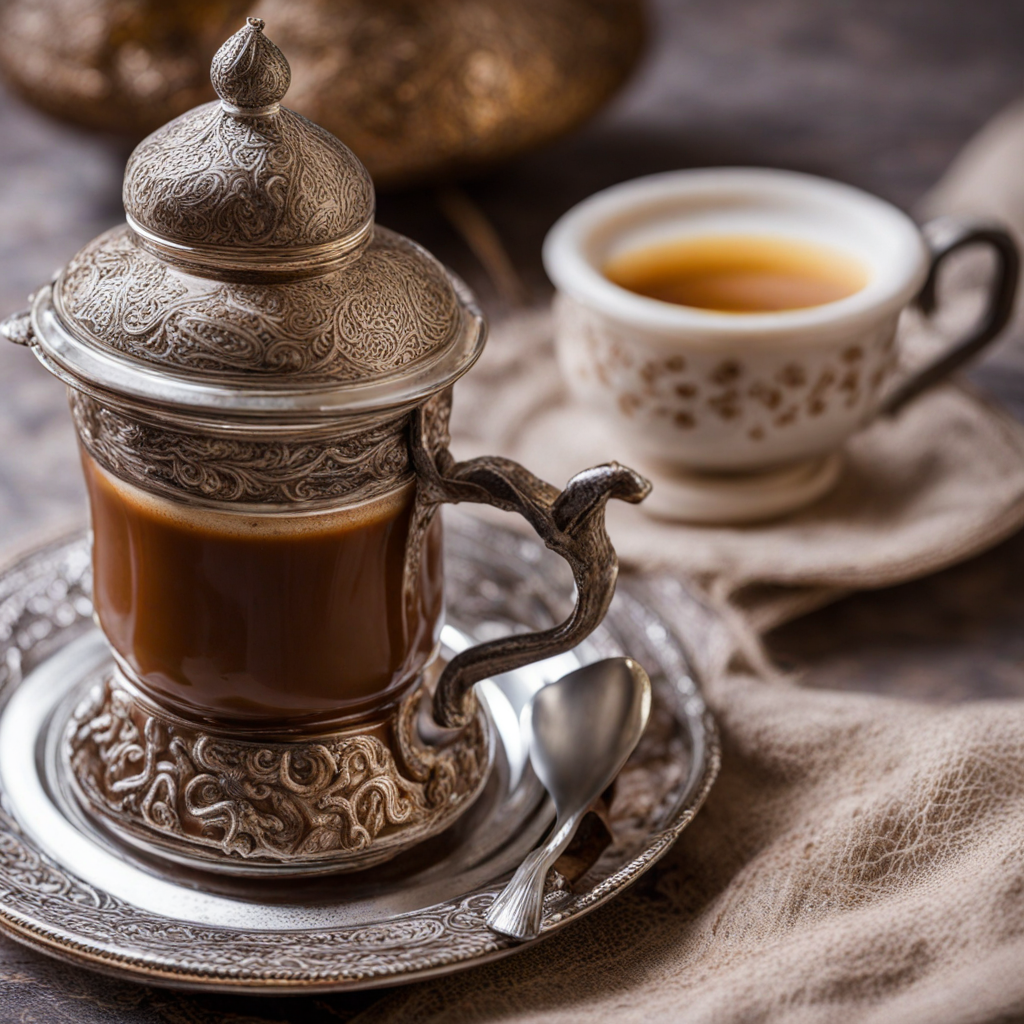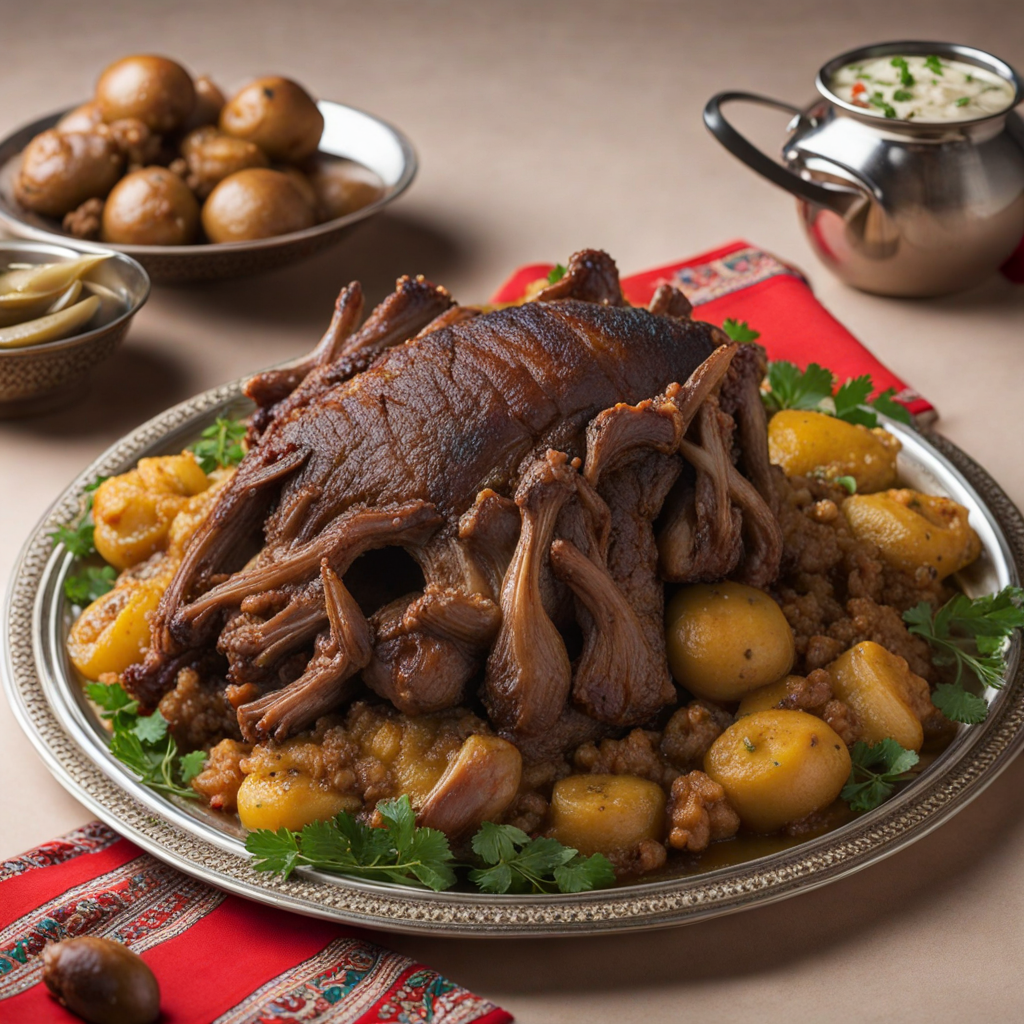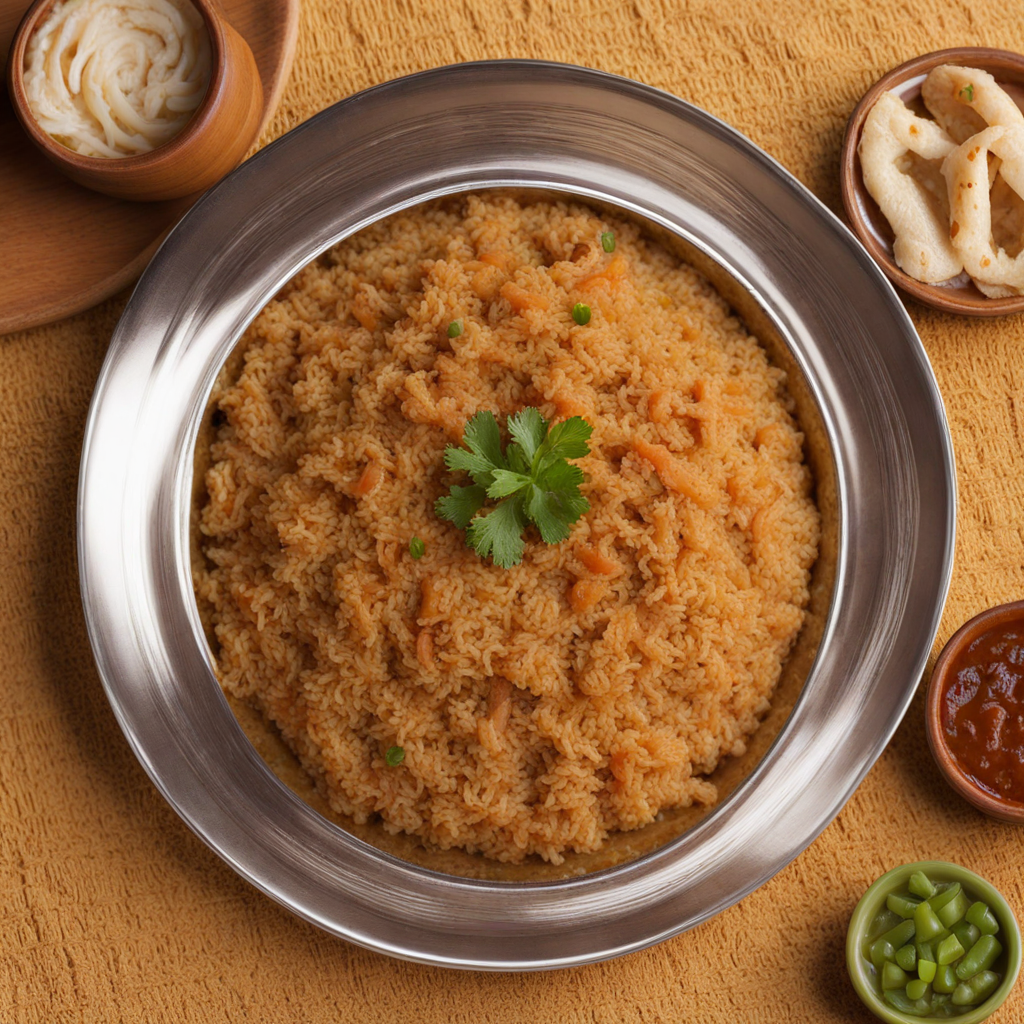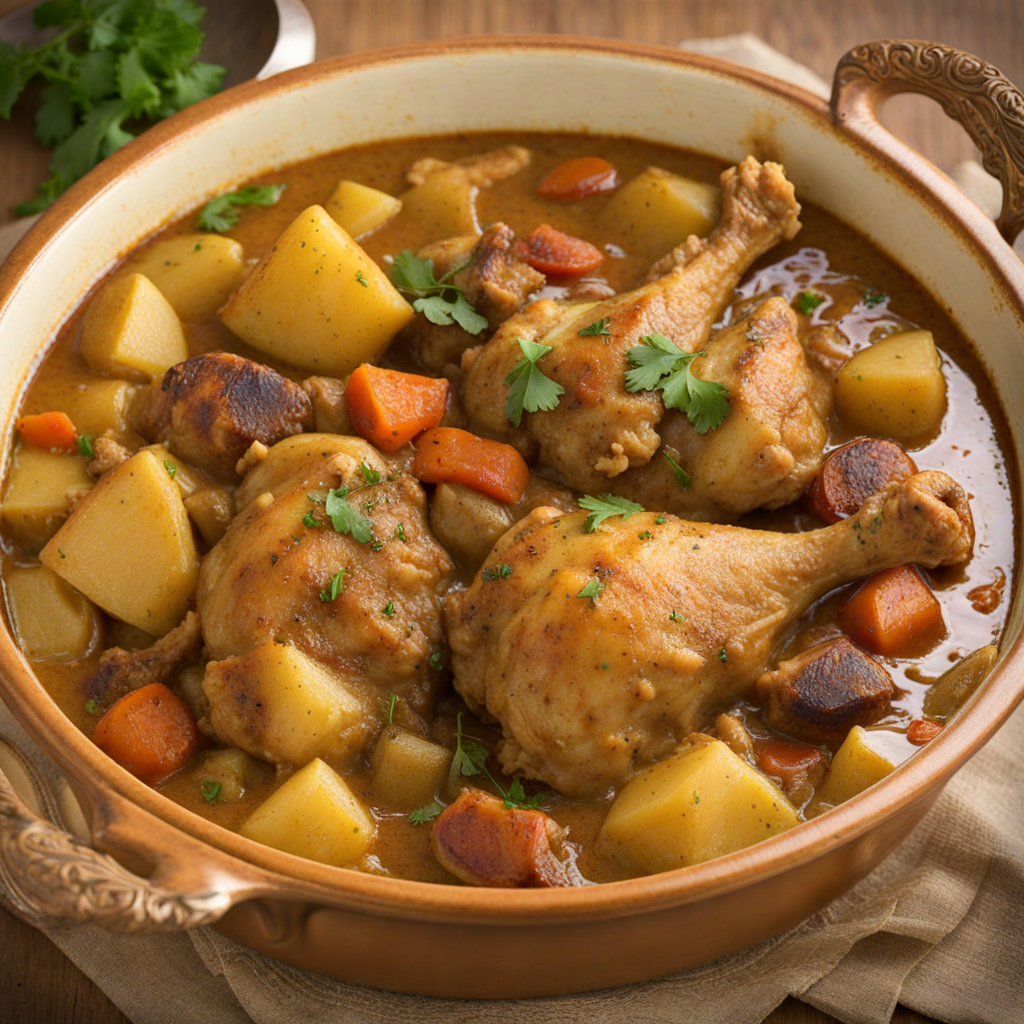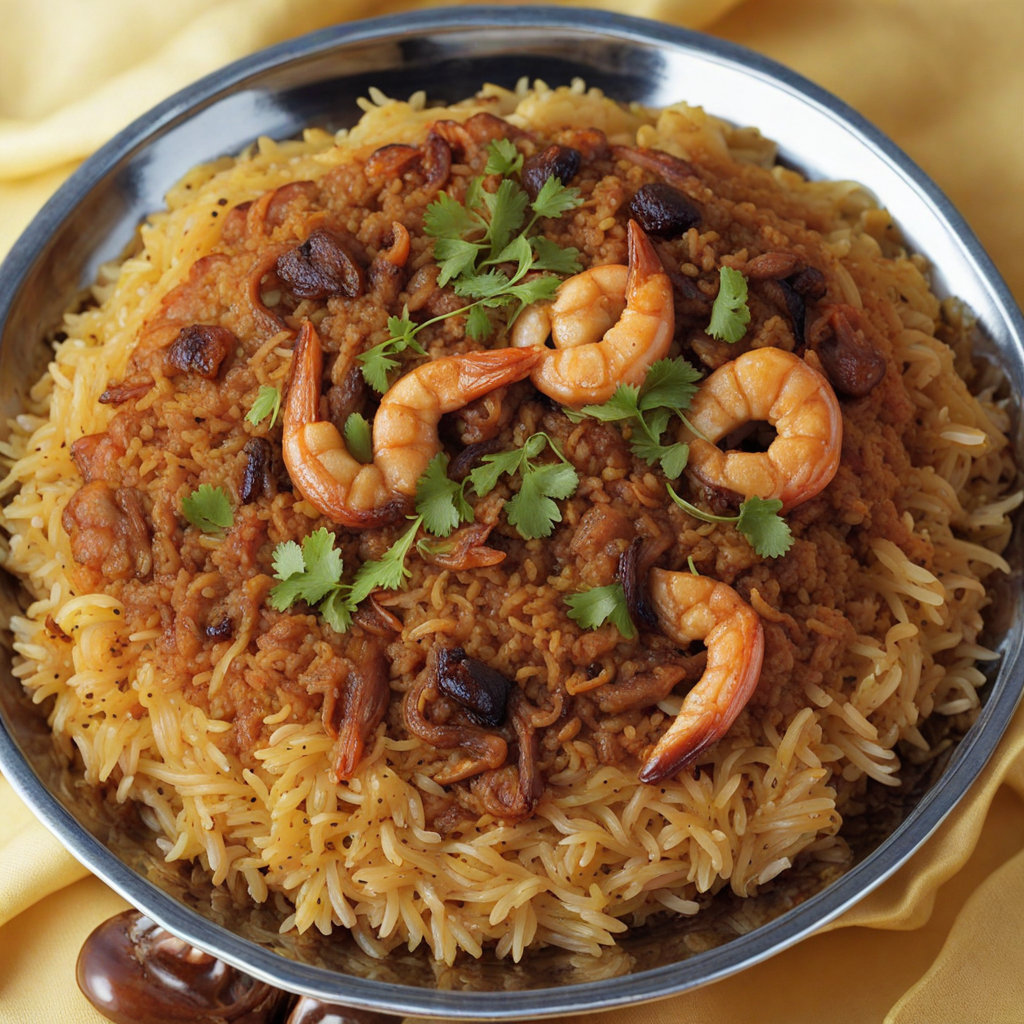Kahwa
Kahwa is a traditional Omani coffee that embodies the rich heritage and culture of Oman. This aromatic beverage is typically made from lightly roasted Arabica coffee beans, which are ground coarsely to release their delicate flavors. The unique preparation involves boiling the coffee with water, and it is often infused with an array of spices such as cardamom, cinnamon, and sometimes saffron, giving it a warm and inviting aroma. The fragrant spices not only enhance the coffee's taste but also add a layer of complexity that makes each sip a delightful experience. Served in small, ornate cups, Kahwa is traditionally accompanied by dates, which complement its slightly bitter notes with their natural sweetness. The presentation is an art in itself—Kahwa is often poured from a distinctive dallah (a traditional coffee pot) that epitomizes Omani craftsmanship. The act of serving Kahwa is a gesture of hospitality, making it an integral part of Omani social gatherings and celebrations. It is common for guests to be offered multiple servings, symbolizing generosity and warmth. The flavor profile of Kahwa is distinctive yet subtle; it is not overly strong or bitter like some other coffee varieties. The infusion of spices creates a soothing and aromatic experience, making it perfect for both leisurely afternoons and festive occasions. As you savor this exquisite beverage, you’ll find that Kahwa offers a taste of Oman’s cultural richness and deep-rooted traditions, inviting you to explore the vibrant heritage of this beautiful country with each comforting cup.
How It Became This Dish
The History of قهوة عمانية (Omani Coffee) #### Origins The aromatic beverage known as قهوة عمانية (Omani coffee) is not just a drink; it is a cultural emblem steeped in the history and traditions of Oman. The origin of coffee itself traces back to the ancient coffee forests of Ethiopia, where the coffee plant, Coffea arabica, was first discovered. From Ethiopia, it made its way to the Arabian Peninsula, heralding a new era of social and cultural interaction through this beloved beverage. Oman, strategically located along the trade routes between East Africa, the Arabian Peninsula, and India, became a significant player in the coffee trade during the early centuries of the Islamic Golden Age. While the exact date of coffee's introduction to Oman remains uncertain, it is widely believed that coffee was embraced by Omani tribesmen in the 15th century. The beverage not only provided a source of comfort but also became integral to the fabric of Omani social life. #### Cultural Significance Omani coffee holds a significant place in Omani hospitality and culture. It is traditionally served in small cups, called "finjan," alongside dates, symbolizing generosity and warmth toward guests. The act of serving coffee is a ritual in itself, often marked by an elaborate process that includes the brewing of the coffee beans, which are typically lightly roasted and then ground with a mortar and pestle. The unique blend of spices, including cardamom, saffron, and sometimes cloves, sets Omani coffee apart from other regional preparations. In Oman, the preparation and serving of قهوة عمانية is more than just a culinary practice; it is an expression of identity and community. The coffee ceremony is a social event where friends and family gather to share stories, celebrate milestones, or simply enjoy each other's company. This communal aspect of coffee drinking reinforces social bonds and highlights the importance of hospitality in Omani culture. Moreover, Omani coffee is often associated with traditional practices and values, such as respect for elders and the importance of familial ties. The coffee ceremony is sometimes accompanied by recitations of poetry or discussions about local history, adding layers of cultural richness to the experience. #### Development Over Time As Oman entered the 20th century, the introduction of modern technologies and globalization began to influence the traditional practices surrounding coffee. While the core preparation methods of قهوة عمانية have remained largely unchanged, the way it is consumed has evolved. In urban areas, coffee shops have emerged, offering a contemporary twist on the traditional coffee experience. These establishments often blend modern aesthetics with traditional practices, creating spaces where young Omanis can enjoy Omani coffee while socializing in a more modern context. This evolution has led to a revitalization of interest in Omani coffee, particularly among younger generations who seek to connect with their heritage while navigating a globalized world. Furthermore, the global coffee culture has influenced the way Omani coffee is perceived outside of Oman. As international tourism increased in the late 20th and early 21st centuries, Omani coffee became a symbol of Omani cultural heritage showcased to visitors. It has found its way into the hearts of travelers who have experienced the warmth of Omani hospitality, leading to a growing appreciation for this unique beverage on a global platform. #### The Global Recognition of قهوة عمانية In recent years, there has been a concerted effort to promote Omani coffee as part of Oman’s cultural identity. The Omani government, alongside local coffee producers, has showcased قهوة عمانية at international fairs and exhibitions, emphasizing its historical significance and cultural value. This has led to a renewed interest in Omani coffee both locally and abroad, with initiatives aimed at preserving traditional coffee cultivation practices and promoting sustainable farming methods. Moreover, as part of the UNESCO Intangible Cultural Heritage, the coffee culture of Oman is gaining recognition. This acknowledgment not only helps in preserving traditional practices but also enhances the visibility of Oman on the global stage. The unique preparation techniques and the associated rituals are being documented and celebrated, ensuring that future generations will continue to honor this integral part of Omani culture. #### The Future of قهوة عمانية Looking ahead, the future of قهوة عمانية appears promising, as it navigates the complexities of modernization while remaining deeply rooted in tradition. The younger generation in Oman is increasingly interested in their culinary heritage, leading to a revival of traditional practices and a focus on local ingredients. This renewed interest is not only about preserving the past but also about innovating within the framework of tradition. As the world becomes more interconnected, Omani coffee is poised to become a global ambassador of Omani culture. The unique flavors, the distinct preparation methods, and the rich history behind قهوة عمانية offer a compelling narrative that resonates with people across cultures. With a growing emphasis on authenticity and experiential travel, more people are likely to seek out the genuine experience of enjoying Omani coffee in its native context. In conclusion, قهوة عمانية is much more than a beverage; it is a testament to Oman’s rich cultural heritage, a symbol of hospitality, and an evolving tradition that continues to adapt to the modern world. From its ancient origins to its contemporary expressions, Omani coffee remains a cherished part of Omani identity, binding generations together through shared rituals and experiences. As it continues to captivate the hearts of both locals and visitors alike, قهوة عمانية stands as a proud emblem of Oman’s enduring legacy.
You may like
Discover local flavors from Oman


